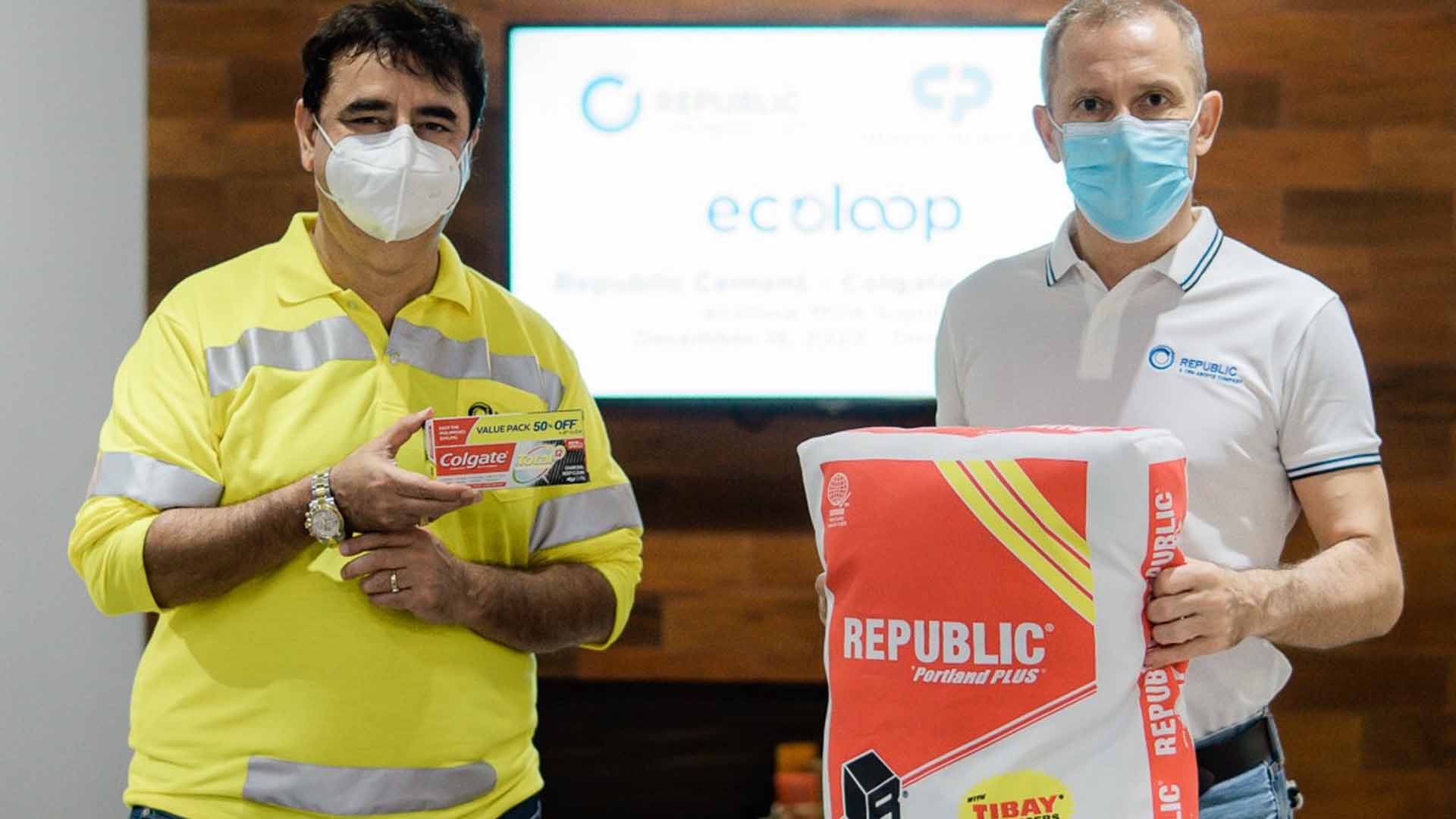Leading construction solutions provider Republic Cement and Colgate-Palmolive Philippines, makers of leading oral and personal care health and hygiene products, have joined together to address the plastic waste problem in the Philippines.
In a memorandum of agreement signed last December 18, 2020 at Republic Cement’s plant in Teresa, Rizal, both companies committed to utilizing the cement manufacturer’s co-processing initiative to reduce the amount of plastic ending up in landfills and waterways.

“Republic Cement is proud to be working with Colgate to support their plastic waste reduction goals through ecoloop, our resource recovery arm. We are excited to be a part of their journey and we are confident that through our shared commitment towards sustainability, we will be able to help support Colgate achieve their goals in the Philippines,” said Republic Cement president and chief executive officer Nabil Francis.
Co-processing is the reuse or recovery of thermal and mineral properties of qualified waste materials while manufacturing cement in a single combined operation. Through ecoloop’s co-processing and the use of plastic waste as alternative fuels, Republic can manufacture cement with reduced dependence on fossil fuels such as coal. Residual wastes are effectively diverted from landfills and waterways, thereby addressing the plastic pollution crisis by capturing pre- and post-consumer waste in direct partnership with fast-moving consumer goods (FMCG) companies.
“At Colgate-Palmolive Philippines, we can and will create a healthier and more sustainable future for all. This means preserving our environment and integrating sustainability in all that we do, by developing sustainable products that are recyclable, reusable or compostable, helping to change behavior through waste management education, and by collecting and recycling plastic to help eliminate plastic waste. Through our partnership with Republic Cement, we look forward to achieving our shared vision of eliminating plastic waste and creating a sustainable world we can all smile about,” said Arvind Sachdev, Colgate-Palmolive Philippines president and general manager.
“Colgate-Palmolive is doing its part by helping to provide Filipino homes with sustainable products. In 2020, Colgate-Palmolive launched its first eco-friendly toothbrush made with a natural biodegradable bamboo handle and packaged in plastic-free recycled cardboard. We also moved into recycle-ready packaging with our Palmolive sachets. Palmolive Sachets are now made of a mono-material—a packaging type with only one form of plastic that makes it ready for recycling. Our Palmolive Soap cartons use paper with high-recycled content. These recycle-ready cartons are non-laminated, making it possible to re-process. This way, we are increasing the acceptability of our products’ packaging in the recycling stream,” added Sachdev.
Republic Cement is licensed by the Department of Environment and Natural Resources (DENR) to utilize and dispose of qualified waste streams through cement kiln co-processing, which is considered a superior waste management method where waste materials are processed at a very high temperature. This breaks down complex materials into simpler compounds and the energy or mineral content of wastes are completely recovered and utilized in the process of producing cement. Emissions from the process are filtered and monitored in compliance with DENR standards.

While co-processing involves the application of heat to destroy waste, it is distinct from the traditional waste management practice of incineration. “ecoloop utilizes the cement kiln co-processing method, where emissions are contained and managed within the kiln and any ash produced fully integrated into the stable microstructure of clinker, a key ingredient of cement,” shared ecoloop director Angela Edralin-Valencia. “On the other hand, some forms of incineration are purely for waste disposal without any energy or material recovery aspects. There is also a higher chance of noxious gases being released into the atmosphere and the ash byproduct from incineration usually still ending up in landfills.”
For close to two decades, Republic Cement has mastered the art of alternative fuels at its five integrated cement plants across the country. Backed by its 60 years manufacturing expertise, Republic Cement aims to establish co-processing through ecoloop as a viable and sustainable waste management solution, especially for plastics and other residual waste.
“Our partnership with Colgate paves the way in setting a great example in our two companies working together to provide clear solutions towards managing the Philippine plastic waste problem and together, building a greener, stronger Republic” said Francis.








